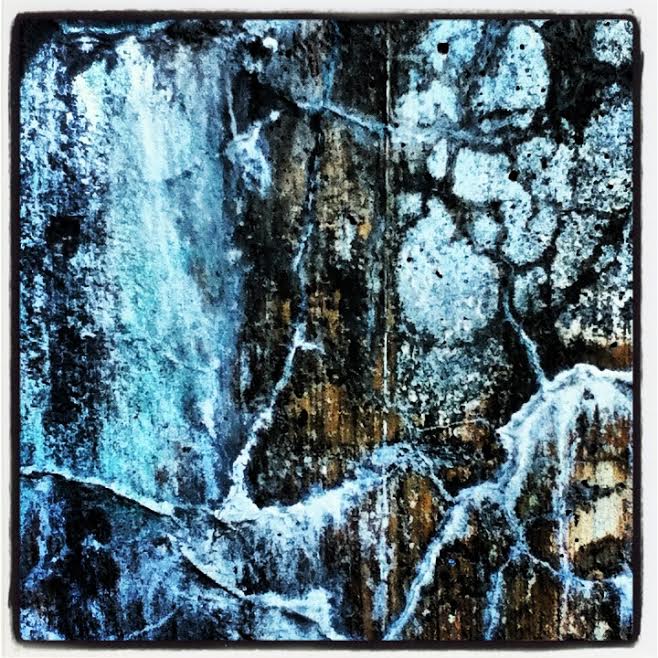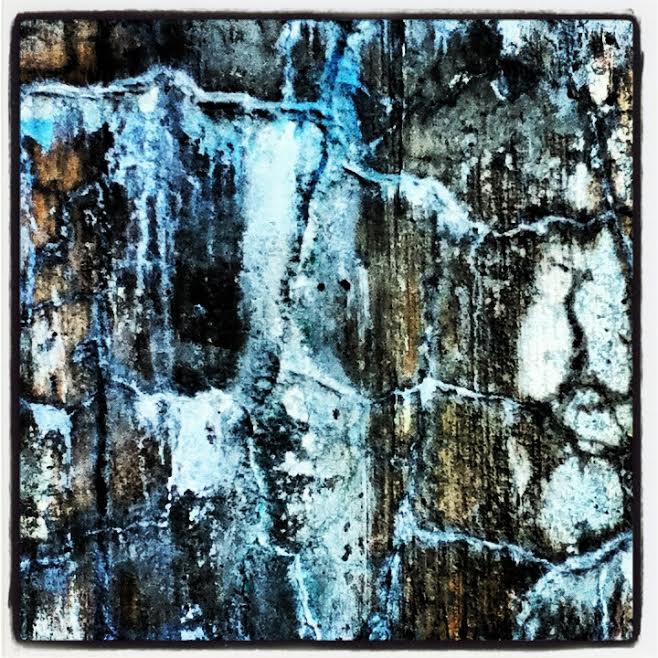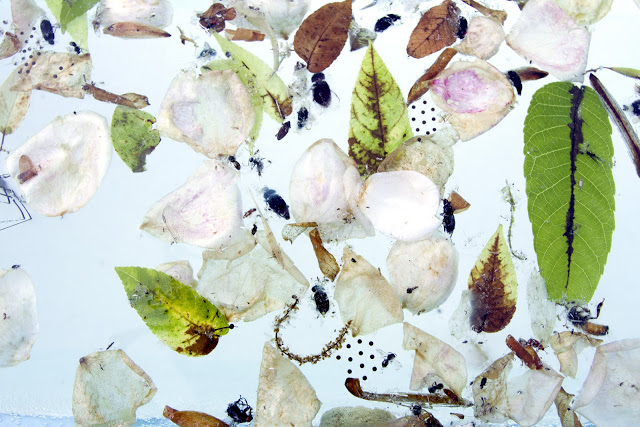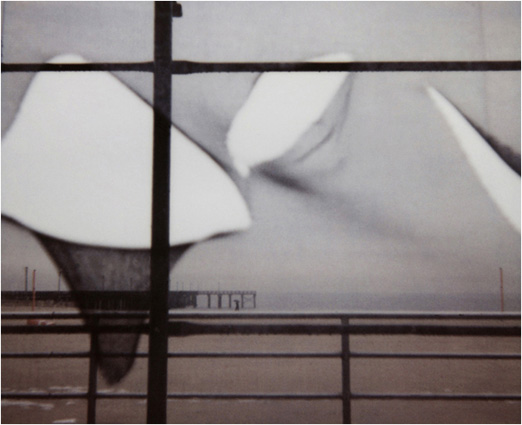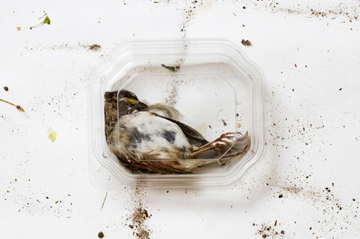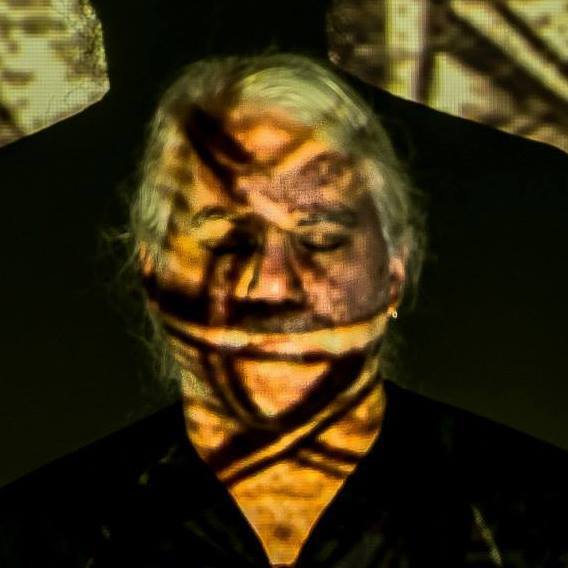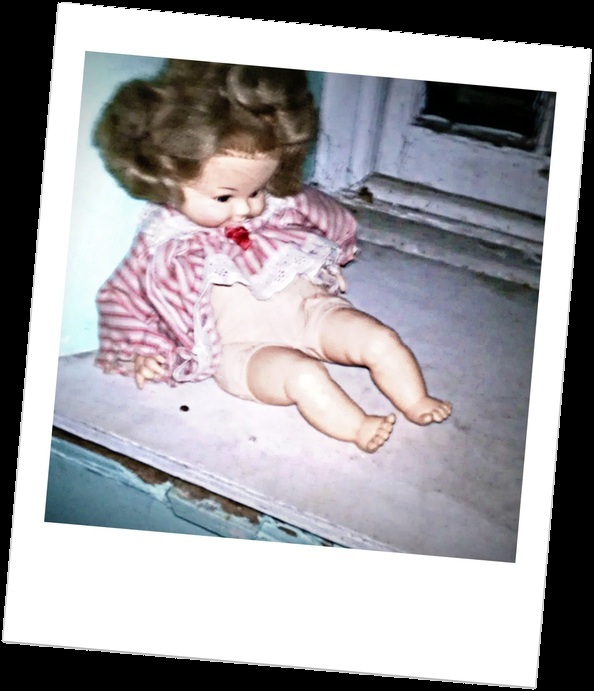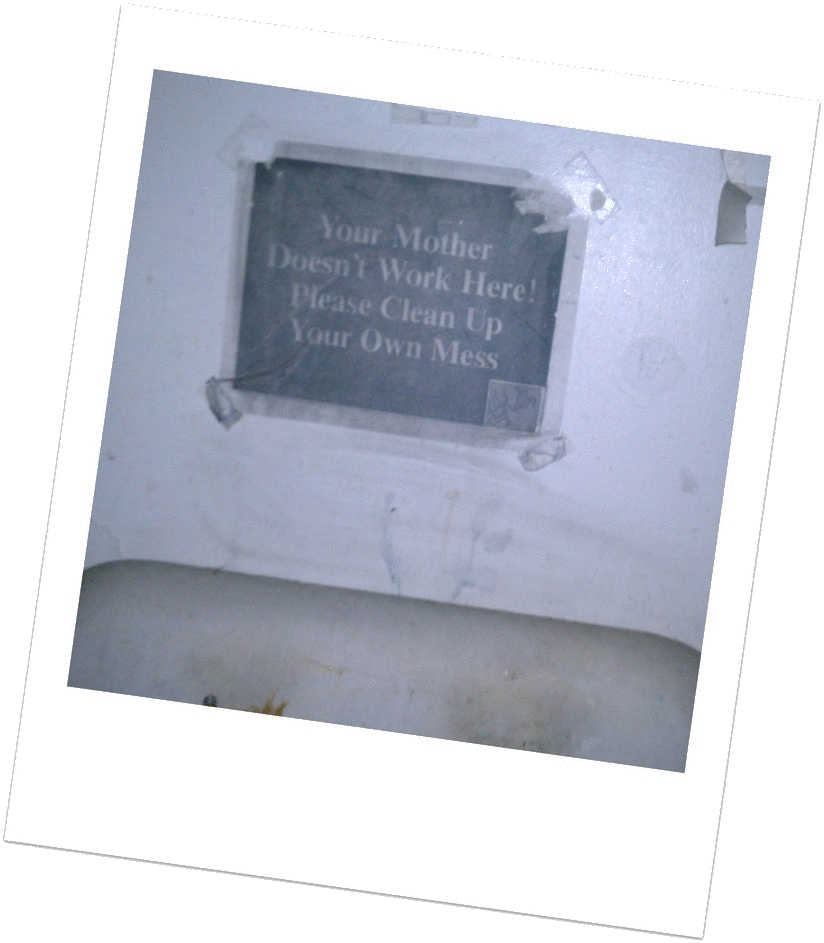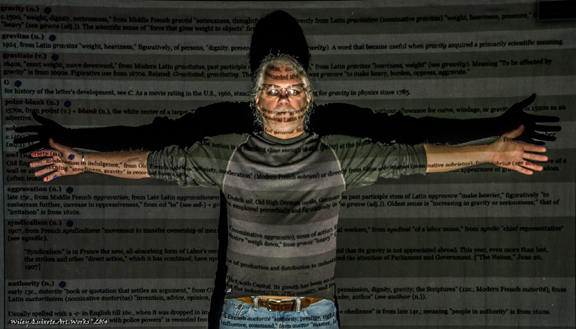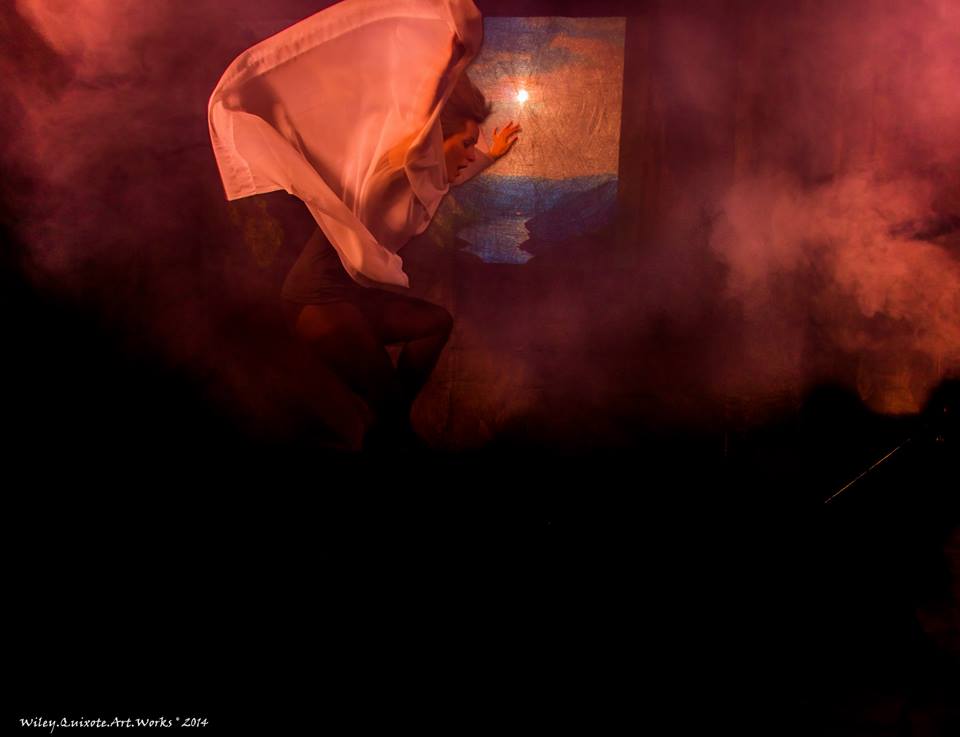
“What do you look for in someone you love?” my mother asked, shifting on the bench to face me.
I thought for a second. I had pretty expansive criteria for a thirteen year old. “Well,” I said, staring into the patch of purple flowers behind her, “they have to be cute, smart, funny, cute…”
“You never said it had to be a man.” She paused. “See, honey, it’s not that I prefer women. I just prefer Naomi. If Naomi were a man, I’d be heterosexual. Make sense?”
I looked back in the direction we’d come. Flowers bloomed everywhere, in every color. I guessed, as settings went, the Dallas Arboretum was as beautiful a place as any to learn your mother was a lesbian, if you had to learn it. Well, to learn your mother was a Naomi-sbian, at any rate. I wondered how Amy was taking the news.
“So, Naomi is telling Amy now?” I didn’t know why they needed to tell my twin sister and me separately.
“No,” my mother replied. “I’m telling you because you asked me. When Amy’s ready to know, she’ll ask.”
“Oh. So, it’s a secret?” I felt the familiar pull in my throat.
“Not exactly. It just isn’t something we’re telling people.” She reached for my hand, then added a barely audible “yet” – like it wasn’t really coming; it was just the logical end to that sentence. “It’s not a big deal. We’re just not ready to talk about it.”
I’m no good at secrets. I think my ability to process information is situated in my vocal cords. If I can’t talk about it, I can’t deal with it. An undiscussed secret invariably sits like a popcorn kernel in my throat. And this one was a whole bowl of them.
For the next two weeks, I tried to get Amy “ready-to-know.”
Amy stood at her full-length mirror, putting on makeup for drama club. I couldn’t imagine spending more time at school than I had to; I’d already skipped gym twice that week. I sat down on her floral comforter – her bed meticulously made, as always, and perfectly smooth, pillows tucked neatly under the bedspread, and Cuddles, her teddy bear, sitting in front of them. He had excellent posture for a stuffed animal. I looked across the hall to my room and saw a wad of blue sheets and blankets hanging from the bed, my pajama pants and T-shirt balled up next to them.
“So, I went to Mom’s room last night to ask her something, and she wasn’t in there.”
“She was in Naomi’s room again?” Amy continued penciling black eyeliner around her already-lined eyes.
“Yeah, of course she was. Don’t you think it’s weird that they sleep in each other’s rooms?” I asked, getting up to check myself in the mirror. My just-dyed blue-black hair looked suitably jarring against my pale skin.
She nudged me out of her way. “Nah, they’re like sisters.”
“I don’t know, dude. Reagan said the reason Mom has a vibrator is because she’s gay.”
“Don’t be ridiculous. That’s for her back. She showed us, remember?”
I remembered. “Right. I’m sure back massagers are always shaped like that.” I pulled a tube of lipstick out of the top rack of Amy’s pink Caboodle. I twisted it open, and poised the waxy, Pepto-Bismol-colored lipstick over my mouth, waiting for my sister to notice. “Amy, just ask her if she’s gay. Tell her someone at school said it, and you just wanted to ask her yourself.”
“Debbie, give me that,” she said, grabbing the lipstick. “Shouldn’t you be wearing ‘Black Death’ or something?” She flipped her dirty-blonde hair over her shoulder.
“Very funny.” I picked up her eyeliner and sat down in front of the mirror.
“Why don’t you ask her? You’re the one who thinks it. Get out of my way, please,” she said, stepping over me en route to her closet.
“But I don’t want to ask!” I whined. “Come on. You’re the big sister this year anyway.”
As kids, our parents told us Amy was older in odd years, and I was older in even ones. We were seven before a friend’s big brother pointed out that 1979, our birth year, was an odd one – making Amy officially older and giving credence to her big-sister bossiness. When presented with that flawless detective work, my parents folded and told us the truth: Amy had six whole minutes on me.
But I was the crafty one.
Amy sighed. “Fine. Could you move, already?” She sucked in her stomach and adjusted her halter-top in the mirror.
I expected to feel relief when Amy knew, but it took a few days before she would talk about it. She was too busy slamming doors and not looking at my mother, except to glare at her turned back.
My mom spent those days repeating lines from the recent divorce: “It’s okay to be angry. I know you love me, and you know I love you. You can tell me you hate me. I will still love you. We’re a family.”
I felt the popcorn kernel growing.
I tried writing a diary. I didn’t feel any different.
I tried accidentally leaving my diary on the living room table, opened to the page where I had written (in big fat letters) how I desperately wanted to talk to somebody.
“Sweetheart,” my mom said, handing the closed diary back to me, “Naomi and I told Rabbi Singer about us so you’d have someone to talk to. Should we set up a meeting? Or, you know you can always talk to Naomi or me.”
Naomi stood next to her, silent, as she had often been lately.
“Great, thanks.” I folded my arms around my diary, went to my room and shut the door.
Naomi, we’d been told, had moved in with us for financial reasons. We needed to get out of our tiny post-divorce closet of an apartment, and Naomi wanted to make the move from New Orleans to Dallas without committing to a house. So we rented together. I liked Naomi. Loved her, even. She was like a fun aunt you could giggle away an entire evening with – a much-needed lift from our new, heavier lives.
But she wasn’t my fun aunt. She was my mother’s lover.
It wasn’t the being lied to that bothered me. It was the lying. Telling people Naomi was my aunt. Lying to Amy to make her ask so I wouldn’t be carrying the truth alone. Keeping the secret from my friends – the people who knew what I’d gotten on my geometry homework, what stupid thing my dad and I had fought about on the phone the night before, what boy had called on the other line while we fought, and which ripped JNCOs and hoodie-sweatshirt I planned to wear to school the next day.
I didn’t care if my mom was a lesbian or a Democrat or a garbage collector – at least I didn’t think I did. I just felt like I should. Everyone else would (if they knew). And they’d despise us. Maybe somewhere else in the country lived lots of homosexuals and their beaming, well-adjusted children. Maybe normal families invited them over for Thanksgiving or birthday parties. Not here. Not in Dallas, Texas. Not in 1992. Here, my mom would lose her job (as a school principal, not a garbage woman). People would talk. There would be no more invitations to anyone’s Bar Mitzvah or birthday party. We’d be ignored, laughed at. We’d be outcasts.
A few open diary entries later, my mother said, “You and Amy can each tell one person.”
I tried bargaining: “Just one? But I can’t tell Emma if I don’t tell Abby.” And I can’t tell Emma and Abby if I don’t tell Blair. And I can’t tell Blair if I don’t tell Jaime.
“One person,” my mother repeated.
“I’m telling Quinn,” Amy said.
What a stupid idea, I thought. No way would I have told Jesus-Freak Quinn. I’d had enough of “being saved.” If Amy wanted to tell her, fine, but I had no interest in hearing that now my mother was destined for Triple Hell: one for Jews, one for divorcees, one for gays.
I decided on Emma, primarily because I saw her first. I didn’t feel nervous; she was my most liberal friend (though growing up in Texas, I didn’t actually know what that meant – just that her parents both had long hair, ate tofu, smoked pot, and didn’t give her a curfew).
Emma didn’t have much of a reaction. She belonged to a Unitarian Universalist church; she knew lots of gay people, probably three or four even. I couldn’t remember ever meeting one.
God loved everyone, she reminded me, so why shouldn’t she? It was no big deal, I shouldn’t worry about it, it didn’t change anything, and, of course she wouldn’t tell anyone.
My confession felt anti-climactic. I decided Abby should be my “one person” instead. I just hoped she wouldn’t hate my mom or Naomi after. The night I planned to tell her, we were in her living room with her mom, who was like another mother to me. It wouldn’t hurt to tell them both – they could count as one.
I cried while I said it. They hugged me. They promised to keep it between us.
“It’s okay, honey,” Abby’s mom said the next morning as I grabbed my bag and headed out the door.
Then she stopped letting Abby sleep over.
I thought maybe I should tell Hailey. Even though we hadn’t been hanging out long, she was quickly becoming my new best friend. In elementary school, Hailey had been friends with Amy, and she’d even come over to our old house once before the divorce. But their friendship ended suddenly and dramatically when Amy allegedly stole one of Hailey’s stickers.
Hailey and I had never had classes together, but that semester, we’d been assigned as lab partners. I got my first B in that class. After passing notes and laughing through a month of lectures and experiments, we started going to each other’s houses after school. Maybe it was too soon to tell her, though. What if she thought I liked girls, too?
One day, after I’d decided definitely not to tell her, we sat in her driveway, practicing our newly acquired cigarette-smoking habit, giggling as usual. Mid-laugh, I blurted: “My mom’s a lesbian.”
Hailey cracked up. So did I. I laughed until I cried.
“You’re serious.” She looked at me like I’d just told her my mom had a brain tumor.
I continued crying. Hailey put her arm around me and lit me another cigarette.
“You can’t tell anyone, okay?”
She nodded.
My sister told Quinn and did not immediately burst into flames. She didn’t tell anyone else. After my fifth or sixth “one person,” Amy developed and perfected an impression of me meeting anyone she could think of – a new boy, the doctor, the President: “Hi, I’m Debbie and my mom’s a lesbian.”
I wondered if my dad knew. My mom said we couldn’t tell him, not even if he asked. She didn’t think he’d try to get custody, but she couldn’t know for sure. Either way, she reiterated, her situation was not public knowledge.
When I met Gavin, my first “serious” boyfriend, a few months later, I asked my mom if I could tell him. I don’t know why I asked; I’d never bothered before. Maybe I wanted to make up for all the people I’d told already. Maybe I figured she’d want him to know, if someone had to. She liked Gavin: he said hello to her on the phone before asking for me, showed no signs of shock or fear when she made him drive her around our neighborhood before she’d let me get in his car, and – her favorite – he hugged her every time he came over. She said yes.
After I told him, he grinned. “That’s really cool! You’re so lucky. You have two moms!” Gavin’s own mother had died a few years back. I cried as usual, but this time for Gavin.
Feeling especially brave at a tattoo shop down in Deep Ellum one day – after not passing out from getting my nose pierced – I decided to tell my new friend Alyssa who was getting her belly button done. I wanted to shock her, I think. But she just said the usual: No big deal. No, she wouldn’t tell – not even her druggie boyfriend, Trevor. She seemed grateful to be trusted, and genuinely concerned for me.
When we walked into my house that afternoon, my mom stared at me vacantly and said: “You have a hole in your nose.”
I pretended it was no big deal. I was getting good at that.
I cringed when that evening Alyssa’s earring got caught in my mom’s sweater as they hugged goodbye. Would Alyssa think my mom enjoyed her ear pressed against her breast? I walked Alyssa outside, apologizing.
“It’s okay. Don’t worry about it,” she said, her cheeks not yet returned to their normal color.
I faked a smile and waved goodnight. But I was tired of hearing it was okay. It’s okay was just another lie.
One night, Matt and I sat facing each other on opposite ends of his ratty green couch with our legs up (his on the outside, mine on the inside), a typical middle-of-the-night scene for us. Hailey and I had been sneaking out somewhat religiously, just to Matt’s apartment though. He was the only person we knew who lived on his own.
Before we met him, Matt had been through everything from a drug-induced heart attack to living in his car. Now he was getting his life together: working at a gas station; staying clean; and lately, trying to keep his tearful, insecure, fourteen-year-old admirer from heading down the same path.
Even though we’d only known each other a few months, he was already more important to me than almost anyone. Not like a boyfriend or anything – though a few weeks after we’d met, he’d stopped his car in front of my house, turned to look at me in the passenger seat, and said: “I know you think you’re in love with me.”
I loosened my grip on the door handle. I didn’t know if he was about to tell me he loved me, or I was too young, or he never wanted to see me again. I tried to look simultaneously beautiful and like I didn’t care. Please don’t break my heart.
I nodded.
“That’s sweet,” he said, his hand on my arm. “But you’re wrong.”
That was one I hadn’t anticipated.
“You’ve just never had a relationship like ours, especially not with a guy. I’m in love with you, too, in a way.” He shrugged. “I love you more than I love my own sister.”
The tears, predictably, welled in my eyes. He was right; I’d never felt this way, not about a friend, a boy, my sister – like all my daylight minutes just needed to be gotten through so I could end up in his smoky apartment, looking at him from my end of the couch, while everyone I knew slept, feeling safe in their beds in their dark rooms. I only felt that with him.
“You’re not in love with me; you just don’t know what else to call it,” Matt finished. He opened his arms and I settled my head against his chest.
Whatever this was, I trusted Matt to look out for me, to know what was best for me, to have answers. I knew that for the rest of my life, I’d be comparing all of my unworthy boyfriends to him and trying to become the person only he knew I could be. I loved him even more then.
Usually, Matt’s apartment was filled with “friends” from his former life: good-looking, grungy eighteen-year olds with long hair and heroin-user builds hidden inside ill-fitting Pearl Jam and Soundgarden shirts, passed out in various rooms, sleeping it off or smoking joints on the porch. Tonight it was just me and Matt.
“My mom’s gay,” I said, lighting up a cigarette and picking up an overly-full ashtray from the floor.
“Yeah?” Matt pushed his stringy blonde dreads out of his face. “My sister’s gay too. Actually, she’s a dominatrix, but, you know, she’s a lesbian too.” He flashed me a sympathetic smile and reached out for my cigarette, which desperately needed ashing.
I knew what was coming: my throat constricted. I leaned forward to rest my head on his bent knee, wrapped my arms around his leg, and sobbed. He ran his fingers through my hair for a few minutes.
“It’s gonna be okay, sweetie,” Matt said finally, sober blue gaze pinning me.
The words sounded different. Not like a dismissal or just the thing you say when someone tells you something big. This time it felt true.
I wiped my eyes, and even though the sky hadn’t so much as hinted at morning, I asked Matt to drive me home.
Debbie Bradford received her MFA in Creative Writing from Lesley University. Her work has appeared in The Washington Post, The Connecticut Review, Wicked Alice, Scribblers on the Roof and The Writing Disorder, among other publications. She currently teaches developmental English at Tunxis Community College.
* Names have been changed.
Read an interview with Debbie here.

